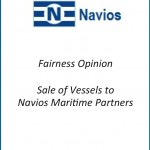Obtaining Equity Capital in Today’s Market
To view original article click here.
There are several types of investors and equity securities from which to choose. However, they won’t all be a good fit.
By: James Cassel
MIAMI, Florida, July 1, 2012 – Growing a company is seldom easy, and today’s economic environment doesn’t make it much easier. However, even in today’s economy, there are ways to raise equity capital.
But first, put yourself in the place of a potential investor. While investors are by nature willing to take risks, they generally will not just give you money without terms and conditions. Keep in mind that money comes with strings.
When seeking equity capital, there are several types of investors and equity securities from which to choose. However, they won’t all be a good fit. In many situations, the company’s stage of growth and amount of equity financing sought will determine what type of investor, equity, and terms and conditions will be available and most appropriate.
INVESTMENTS
To navigate these waters, here’s a look at the types of equity investments and investors.
Angel Investors: Although angel investors may be friends and family, in most cases they are the type of investors who come after friends and family but before venture capitalists for early stage companies. Angels are people with money and an appetite for risk. These investors may potentially: bring a wealth of experience to this process, have significant relationships with key individuals or companies, and provide valuable management advice. They also may be willing to provide seed money, i.e. startup money, which can become expensive because of the relatively high risks associated with starting a business. Bottom line: Angel investors can be an attractive option for higher-risk, small businesses poised for rapid growth at favorable valuations.
Venture Capitalists: With a more formalized vetting process, venture capitalists invest in a small percentage of the deals they review, as they tend to be extremely selective. Their risk tolerance is often high, and therefore, so is the required rate of return. When they do become interested, it’s usually early in a company’s life. This is usually the first investment by institutional investors. They add expertise, contacts, advice and money. They invest with a planned exit event, such as an initial public offering (IPO) or sale.
Private Placements (of equity): Private placements can include debt, equity or both. While raising money quickly is possible from a legal and structural basis, finding investors of any kind takes time. Private placements can be a good option for growth companies, mature companies looking to expand, and those that want to expand without going public. This money can come from individuals or institutional investors. There can be great flexibility in both the structure and valuation of the deal.
One consideration in private placements is the Jumpstart Our Business Startups Act (JOBS), signed into law in April. The bill basically removes the prohibition on general solicitation and advertisement by issuers relying on Rule 506 of Regulation D (Reg D) under the Securities Act of 1933, as amended. In other words, thanks to Reg D, you may, subject to certain rules and regulations, advertise for investors. The SEC has yet to issue the required regulations under the JOBS Act.
IPOs: Going public for most companies provides an infusion of capital as well as the ability to use its stock as currency for making acquisitions. While IPOs can be expensive, and becoming a public company involves much higher levels of accountability and regulatory requirements, IPOs can also bring many benefits. Although generally thought of for large, established companies, they can be good for small, highly visible, rapidly growing businesses. IPOs take all kinds of shapes and forms. One of the recent notable IPOs, Facebook, was clearly not a particularly well-executed offering. Although its success has been debated, it undoubtedly provided an effective exit strategy for some of its private investors and raised substantial funds for the company.
Private Equity Funds: Private equity (PE) funds are professionally managed funds that invest or purchase control of a wide variety of companies. These organizations usually want majority control, though some funds might be willing to only purchase a minority stake. Some prefer mature, stable companies that can show significant growth opportunities, while others like distressed businesses. PE firms focus on multiple factors such as industry, size and geographical location. Perhaps the biggest advantage is that these organizations can provide access to capital beyond what a traditional bank would finance, as well as strategically assist a company. However, companies considering private equity funds must plan long in advance, and they must be ready to withstand the scrutiny of the due diligence of the PE firm. And remember, the investors will impose many restrictions and conditions.
EQUITY SECURITIES
There are a variety of equity securities from which to choose. Depending on the type and situation of the company seeking growth capital, several choices may make more sense.
Common Stock: Common stock represents a form of ownership in a corporation. The common stockholders own the economic benefit of the company. They are inferior to the rights of preferred shareholders. They receive the profits as well as losses of the enterprise.
Preferred Stock: Preferred stock, like common stock, is an equity security. It can take many forms and have lots of flexibility. It can provide for, among other terms, special voting rights, preference on liquidation, dividends, conversion into common stock and certain restrictive covenants.
Warrants & Options: Warrants are a derivative security that represents a privilege or right to purchase securities at a specified price within a certain time period. Warrants are long-term instruments that typically last several years, but will lapse if the right isn’t exercised during the specified time. The intrinsic value of a warrant is found by comparing the price to exercise your right (also known as the subscription price) with the market price of the stock. If the price of the stock increases in value, the warrant represents an opportunity for an investor (option holder) to profit by exercising his or her right.
Mezzanine Financing: Mezzanine (mezz) financing is debt capital that can be convertible and gives the lender the right, if he or she so elects, to convert to an ownership interest in the company. Many times mezz financing is coupled with warrants. Generally, they are not control investments, and because it may be treated like equity on the company’s balance sheet depending on the structure, it might be easier to get bank financing. However, while mezz financing is less expensive than pure equity, it is still more expensive than debt.
TIPS
Whatever path you choose, the following tips can help:
• Don’t underestimate the power of relationships, introductions, and good advice from those in the business, like lawyers and investment bankers.
• Be realistic about your business, the valuation of your company, and the amount you seek.
• Conduct due diligence on your investors, as they will check out you and your company. All money is not equal. Make sure you are compatible with the investors because they will own a part of your company and may partake in important business decisions.
• Think about the timing. It will take longer than you imagine. Don’t make rash decisions.
• Consider seeking the counsel of seasoned lawyers, as well as an investment banker.




